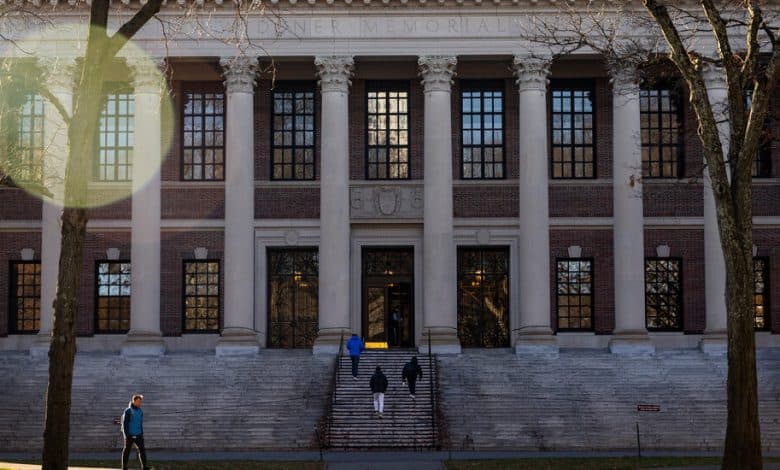Harvard’s Largest Faculty Division Will No Longer Require Diversity Statements

Harvard’s Faculty of Arts and Sciences said on Monday that it would no longer require job applicants to submit “diversity, inclusion and belonging” statements to be hired at the university’s largest faculty division.
Instead, the division will require applicants to describe their “efforts to strengthen academic communities” and discuss how they would promote a “learning environment in which students are encouraged to ask questions and share their ideas,” Nina Zipser, the dean for faculty affairs and planning, said in an email to faculty members.
The decision is a sharp break from the university’s recent practices and comes less than six months after Claudine Gay, Harvard’s first Black president, resigned amid accusations of plagiarism and that the university was not doing enough to combat antisemitism on campus.
Harvard said in a statement that its Faculty of Arts and Sciences had “expanded its approach to learning about candidates being considered for academic appointments by requesting broader and more robust service statements as part of the hiring process.”
The “updated approach,” the university said, “acknowledges the many ways faculty contribute to strengthening their academic communities, including efforts to increase diversity, inclusion and belonging.”
The university added that the decision amounted to “realigning the hiring process with longstanding criteria for tenured and tenure-track faculty positions.”
The Faculty of Arts and Sciences encompasses more than three dozen academic departments and includes Harvard’s undergraduate programs and its Graduate School of Arts and Sciences.
Last month, the Massachusetts Institute of Technology said it would not require diversity statements, which some academic departments had chosen to seek. M.I.T.’s president, Sally Kornbluth, said at the time that the university could “build an inclusive environment in many ways, but compelled statements impinge on freedom of expression, and they don’t work.”
Monday’s announcement marks another significant victory for critics of diversity statements, who have complained that they threatened to suppress robust debate.
This is a developing story. Check back for updates.